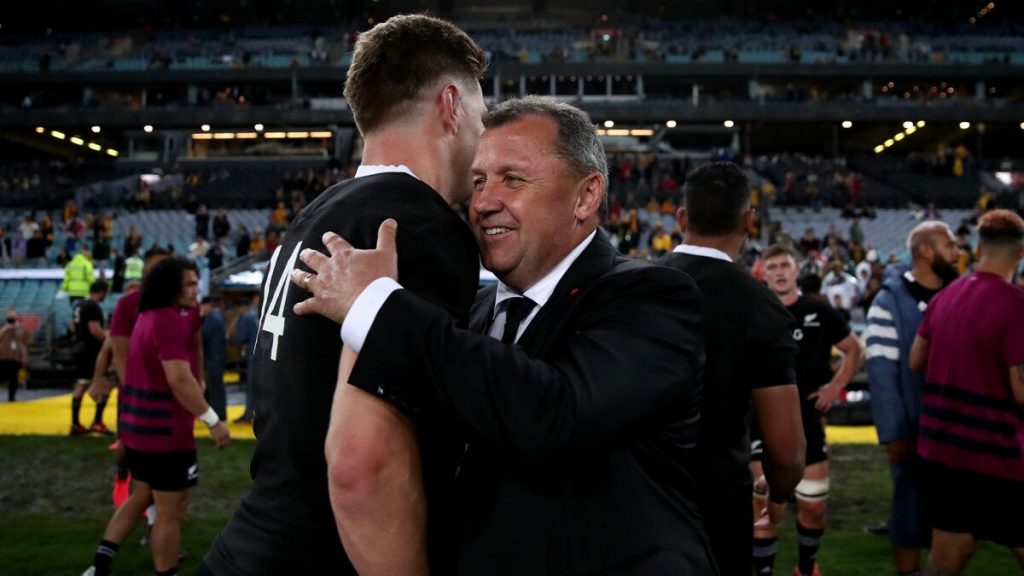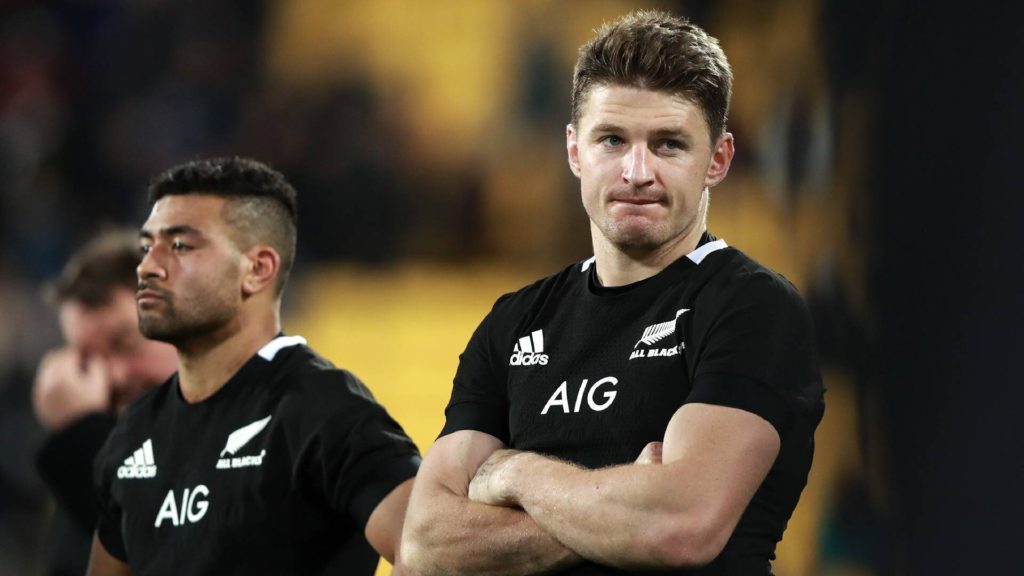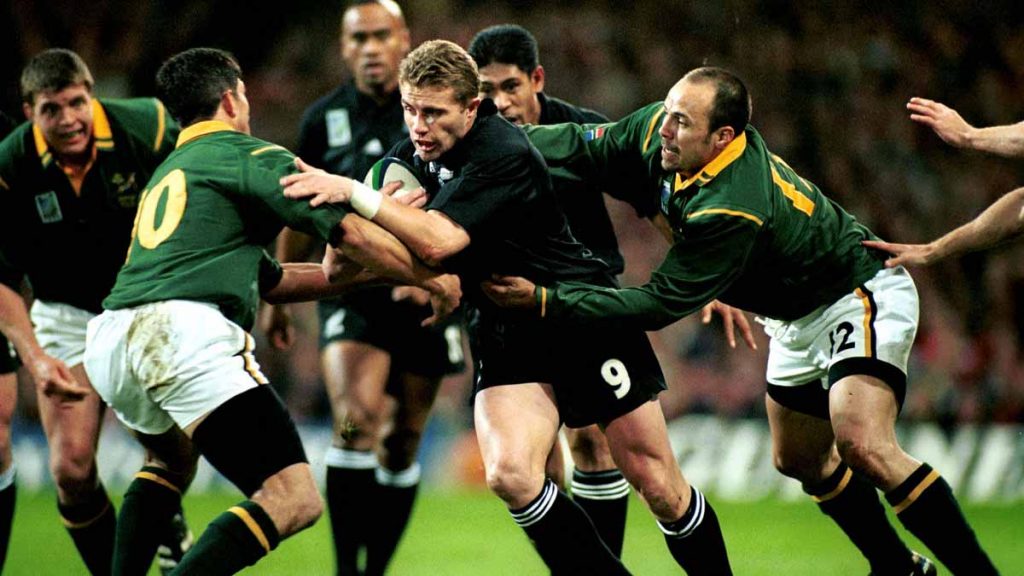Ian Foster’s original two-year deal as All Blacks head coach was always a dark cloud hanging over him, his staff, the players, and New Zealand Rugby, to a degree.
It was immediately compromised by Covid, which meant the structures and plans he had in place to be successfully reappointed through to the 2023 World Cup were thrown out the window. It’s never easy when you face uncertainty and the pressure mounted throughout last year during a pieced-together Rugby Championship in Australia, which, as the All Blacks had only a 50 per cent winning record, was not successful – championship victory and Bledisloe Cup success apart.
I believe New Zealand Rugby got it wrong to offer him such a short deal. Obviously, there were some strong candidates, including Jamie Joseph (who would have teamed up with Tony Brown), and Scott Robertson. Both Joseph and Robertson have won Super Rugby titles as coaches, with Joseph also having international experience with Japan. They weren’t untested. And until this year’s Trans-Tasman competition, Razor has known nothing but success at Super Rugby level after taking over at the Crusaders for the 2017 season.
For Foster to be selected he had to tick all the boxes, so it must have been a kick in the guts to only get a two-year deal which hadn’t been done before as far as an All Blacks head coach was concerned.
It wouldn’t have been good for his confidence or a plan heading towards 2023 in France, and I think the NZR board must have realised that pretty quickly.

Covid changed things but they had dug a hole for themselves because the speculation that Robertson, in particular, could have done a better job began in Foster’s first year in the job. Foster was described as the “wrong person for the job”. The All Blacks’ next World Cup campaign was described as a potential “disaster” three years before it began. And that could have been eliminated from the start, more or less.
It put unnecessary pressure on Foster. If the NZR board truly believed he was a better coach than Robertson, and they must have if they appointed him, they should have given him four years and possibly worked on a succession plan involving his rival.
Keep Razor involved somehow so they’re not potentially butting heads. At the end of the day, they both want the All Blacks to be successful. There’s no way Robertson would have been involved in assisting Foster in some meaningful way if Razor was a chance to succeed him after two years, and the same would have applied for Foster. Maybe that would have been a better plan. As it was, the two-year thing was a bit of a balls-up.
So, they’ve finally made the right call. There’s too much uncertainty and too much going on to throw someone else in the mix. And, having just won the Bledisloe Cup, changing things now would have been wrong.
As it stands, the huge amounts of uncertainty the All Blacks have experienced over the past weeks means they’re certainly likely to be at least a little unnerved right now.
I know as a former player that that is what they are paid to do. They’re paid to play. It’s brutal but it’s the reality. But they also have to prepare for that mentally.
There has been some knocking of heads between New Zealand, Australia and Sanzaar over the Rugby Championship, and I do have a certain amount of sympathy for both New Zealand and Australia.
Obviously, the Wallabies made sacrifices in agreeing to play two tests at Eden Park on successive Saturdays and they will have expected the All Blacks to compromise too regarding travelling to Perth to play the third test last Saturday as scheduled.
But the situation was different. As far as Covid protocols are concerned, there just isn’t the quarantine space in New Zealand compared with Australia. I can understand the All Blacks’ hesitation about getting on a plane when they knew the only MIQ space in New Zealand was at the end of November. Why would they go earlier than they had to, especially with the recent outbreak in New Zealand making the plans around the Perth test so uncertain?
I know as a former player that that is what they are paid to do. They’re paid to play. It’s brutal but it’s the reality. But they also have to prepare for that mentally. When the All Blacks go they must have players in the perfect state of mind to play nine tests against six nations who feature in the world’s top 10, plus Italy. It’s an incredibly difficult tour when you factor in playing Australia, Argentina, South Africa, Ireland, Wales and France away.

The All Blacks are going to have to think about how to keep players fresh for three months. It may involve injecting players in and sending some home from Australia if they can. Some will join for the European component.
It will be a difficult environment to step into and I sympathise. There will be anxiety and doubt because they also have to face heading into the unknown in Europe and the UK where Covid is rampant. Someone like Sam Whitelock has toured Britain and Ireland for years, but it won’t be a normal tour. Foster will have to gather them together and talk about worst-case scenarios.
Potentially included in that will be a player or staff member contracting Covid. They will all be fully vaccinated but it could still go through the camp so they may have to be isolated for weeks and not permitted to play.
The mental side of the game will be even more important and it’s already a big focal point in sport at the moment. We’ve seen tragedy in New Zealand recently and you don’t know the space some people are in when they face adversity; on the international stage there are Naomi Osaka and Simone Biles.
Back in the day, someone might have a crack at you if you ran into them and they had the courage of their convictions to say something … But you didn’t face it on a daily basis. Social media potentially puts it in your face every day.
They are successful but are still struggling with the mental side of that success and pressure.
The big difference now compared with when I played 20 to 25 years ago is social media. Back in the day, someone might have a crack at you if you ran into them and they had the courage of their convictions to say something. There was also occasional criticism in the newspapers, and, later, the internet.
But you didn’t face it on a daily basis. Social media potentially puts it in your face every day. It also gives the general public massive access to athletes. It’s the old story – if someone says ‘don’t look, there’s a naked person’, you probably won’t be able to help yourself. You’re probably going to look. When athletes see good or bad things in comments on their social feeds, that is an overload. I feel that’s where the pressure is coming from.
Everyone goes through bad patches and poor form and you can be overwhelmed by the external and internal pressures. When I look back on my career, I felt it during the ‘99 World Cup, and it didn’t dissipate from there. It got to the point where I was questioning how much I loved the game. I was getting criticised by the public and media and I was really feeling the weight of that.
It was affecting my mindset, personality and wellbeing, to be honest, and as a player for the All Blacks and Crusaders, two high-profile teams, I felt I couldn’t avoid it.

Eventually, Wayne Smith called me out of the blue. He said “I’ve been watching you, are you all right”. As a Southlander and probably someone used to bottling things up, I replied “Yeah, I’m OK”.
He said, “Are you sure? I can see it in your body language and personality”. He said “What is it?” and I told him the criticism was getting too much. I felt picked on. It was getting me down and I was finding it hard to focus. I was questioning myself.
Smithy said what I needed to do is not read and listen to anything unless it came from a trusted source. He said “What you’re not doing is being a good filter. The information is going through and you’re not filtering anything out. You’re absorbing everything.” He told me to use the good information and filter the rubbish out. It was a really good piece of advice. I found that all of a sudden, I didn’t need to think about the stuff that didn’t matter. It completely refreshed me. You can talk about that stuff with your manager or spouse, but it’s your baggage and you have to deal with it.
Many modern-day athletes are caught in a bit of a bind as far as social media is concerned. They use it to spread their profile which can have financial benefits, including sponsorships and so on, but the downsides are potentially huge. It’s there on their phone in their hand 24 hours a day.
They must decide how much they need it if it’s compromising them. For an All Black, if it came down to deleting Instagram from their phone in order to run on to a field with a smile on his face before performing to his potential, then, heck, I reckon that would be an easy choice.


Comments
Join free and tell us what you really think!
Sign up for free